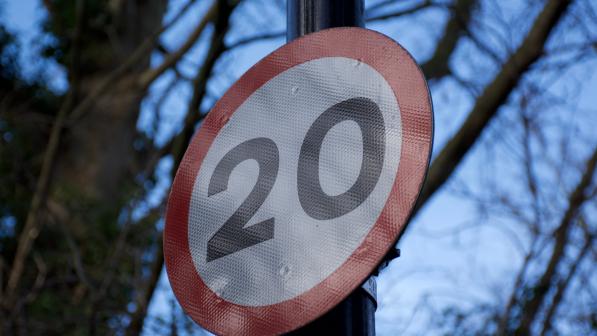Life-savers and leadership: 20mph in Wales

What would most of us do if we had the power to save around 10 people’s lives a year?
What if, over the same time-frame, we could spare 240 or so others from fractures, concussion, severe cuts and/or being hospitalised for life-changing, possibly fatal injuries?
What if, on top of that, as a result of your actions, hundreds more wouldn’t need roadside attention for shock, or go home nursing cuts and bruises?
The repercussions of road collisions don’t stop at the casualty, of course. A victim’s family, friends and colleagues will probably suffer, some terribly, while the emergency services – from police and fire officers to paramedics and hospital staff – have to face the emotional ordeal of the aftermath too.
Yes, these – the potential consequences of a crash with a motor vehicle – don’t make for nice reading, and I don’t want to be alarmist. Billions of trips go smoothly each year, not just by car but also on foot and by cycle, despite the latter’s relative vulnerability.
But I’m deliberately not glossing over the impact of road traffic collisions on the body. Humans are fragility itself compared to heavy machines made of metal and, if we’re hit by them, we will almost certainly come off worse.
And one of the factors that makes a huge difference is speed.
Speed
As the International Transport Forum said in 2018: “The design of the road system and the speed limits set for it must consider the forces the human body can tolerate and survive.”
Also, as other evidence shows, a pedestrian is five times more likely to be killed by a motor vehicle going at around 30mph than at 20mph, a speed at which a driver has more time to take evasive action.
So, one further question: what if, knowing all this, we were in a position to reduce the default speed limit for most roads in built-up areas, where most walking, street crossing and cycling happens (or would happen), from 30mph to 20mph?
I believe (hope) most of us, as humans usually loving and caring about other humans, would do just that.

Congratulations to Wales
Leaders who’ve won the battle for lower speeds elsewhere are cheering the Welsh Government on, not because they think 20mph seems like a good idea, but because they know it is.
Praising Wales’s courage, former Mayor of Bristol George Ferguson says he now gets “mainly love from people” than abuse for pioneering 20mph in his city.
In a message to Wales from Spain, head of the National Road Safety Observatory Álvaro Gómez, who helped usher in a 30km/h limit (about 19mph) for most urban streets, makes a similar point. Despite some fears beforehand, he says, “everything becomes normal, and everything gets better”.
The new normality for urban roads in Spain is, in fact, remarkable: 20% fewer deaths, with fatalities among cyclists and pedestrians down by 34% and 24% respectively.
Congratulations, then, from Cycling UK to the Welsh Government, and especially to Deputy Climate Change Minister Lee Waters MS.
Thanks to them, a default 20mph for a whole nation in the UK turns from dream territory into reality this Sunday. They’ve held their nerve, deferred to physics and evidence, and set an example for other nations.
And they’re doing what is surely, irrefutably, the right thing by their fellow human beings.







